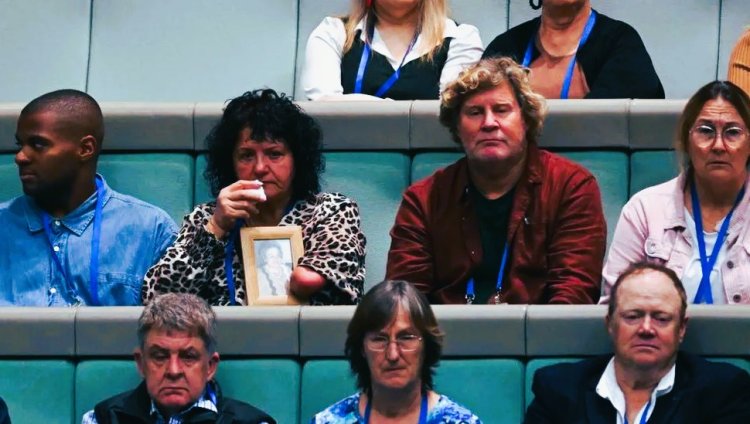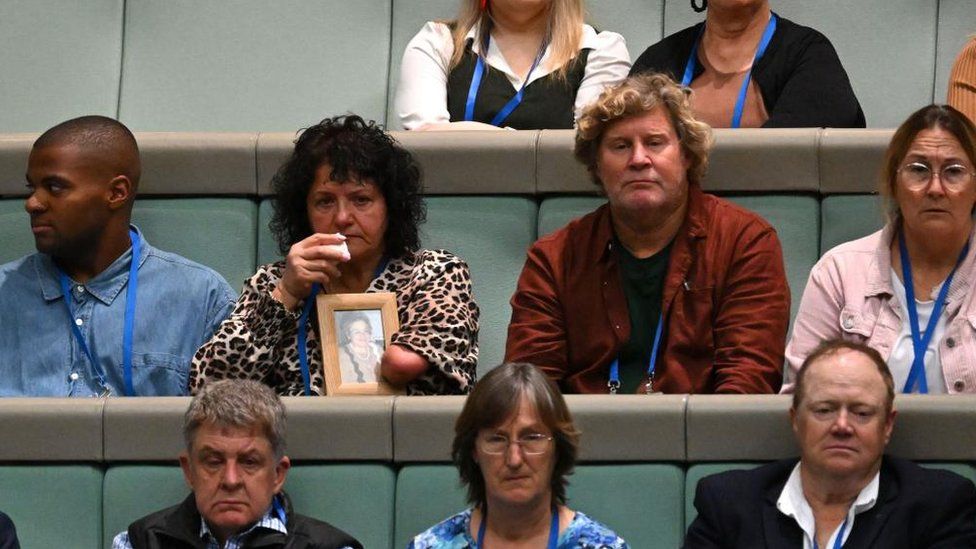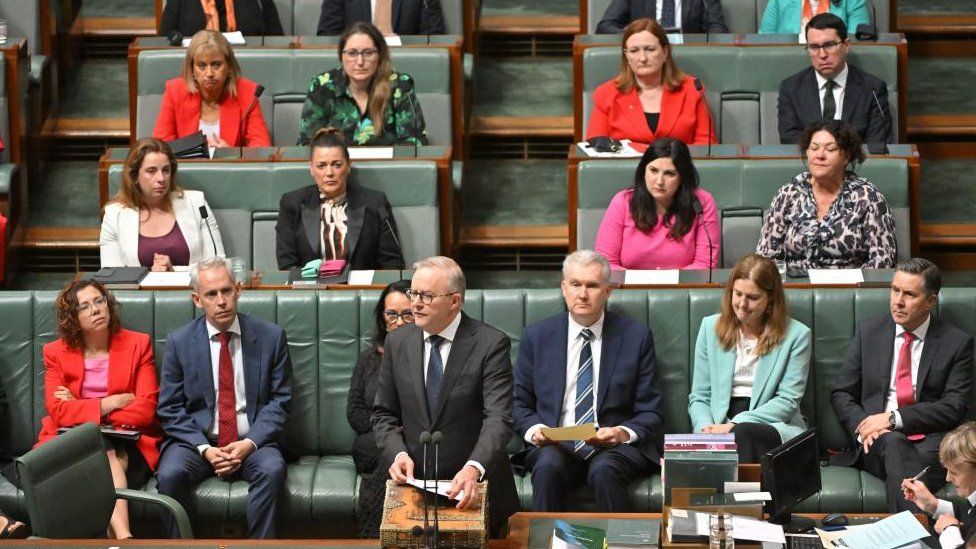Thalidomide: Australia gives national apology to survivors and families
Australia's prime minister has given a national apology to survivors of the thalidomide scandal and their families.


Australia's prime minister has given a national apology to survivors of the thalidomide scandal and their families.
It comes over 60 years after the morning sickness drug started causing birth defects in babies globally.
"This apology takes in one of the darkest chapters in Australia's medical history," Anthony Albanese told parliament on Wednesday.
It is the first time the government has acknowledged its role in the tragedy.
"To the survivors - we apologise for the pain thalidomide has inflicted on each and every one of you each and every day. We are sorry. We are more sorry than we can say," Mr Albanese said, addressing a crowd of survivors and their families in the chamber.
The exact number of people affected in Australia remains unknown, but more than 140 survivors have registered for a financial support programme since 2020.
In 2019, a report found that 20% of Australia's thalidomide cases could have been avoided if leaders had acted sooner.
Survivor Trish Jackson, 61, told the BBC she hoped the apology would give "a bit of peace" to families.
"[But] it should have been done years ago when parents were still alive, when mothers were still alive. Some survivors have even died and not gotten to hear this."

Developed in Germany in the 1950s, thalidomide was originally used as a sedative or tranquiliser, but soon became widely promoted around the world as a morning sickness drug.
As usage increased, so too did reports of birth defects - usually in the form of significantly shortened limbs.
It was an Australian report in The Lancet medical journal that first warned the world of thalidomide's dangers in 1961, and it was taken off the market soon after.
By then an estimated 10,000 babies globally had been born with disabilities.
For decades, survivors have fought for acknowledgments of wrongdoing and compensation.
Canada introduced financial assistance for survivors in 1991, and in 2010 the UK issued a national apology to those affected.
But it wasn't until a landmark Senate inquiry in 2019 that Australia took action to support survivors.
Its financial scheme provided a one-off payment of up to A$500,000 ($332,000; £261,000) to survivors, followed by annual payments of between A$5,000 and A$60,000.
The programme was later closed to new applicants, but on Wednesday Mr Albanese reopened it "to ensure that anyone who may have missed the previous opportunity to apply does not miss out".
What's Your Reaction?


















